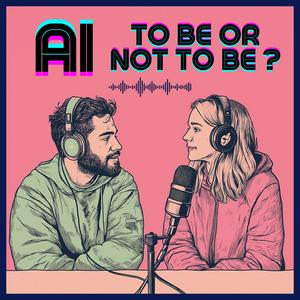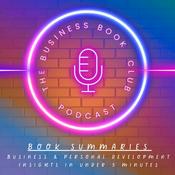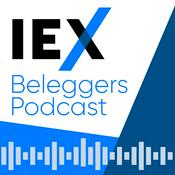AI...TO BE OR NOT TO BE ?

81 afleveringen

The billion dollar bet on emotional artificial intelligence
04-11-2025 | 4 Min.
What if the future of AI wasn't just about raw computational power, but about understanding and empathy? In this episode, we delve into a groundbreaking shift in artificial intelligence, focusing on emotional intelligence as a key component. This pivot is spearheaded by Eric Zelickman, whose ambitious startup Humanzen is at the forefront of this movement. With a staggering billion-dollar raise at a $4 billion valuation, Zelickman's venture aims to redefine how AI interacts with humans, moving beyond the current models that often feel cold and disconnected.Eric Zelickman is not just any researcher; he is a former PhD student at Stanford and a key figure in AI research. His experience includes being on the technical staff at XAI in 2024, and he was the lead author of a pivotal paper on language models. Zelickman has the technical expertise and vision that attract significant venture capital interest. His critique of current AI models centers on their lack of emotional intelligence and long-term contextual understanding, which he argues are crucial for effective human-AI collaboration.The episode explores how Humanzen's empathetic AI model aims to address these shortcomings by building a profile that learns and grows with the user. This approach promises to foster better collaboration between humans and AI, which Zelickman believes is essential for tackling major global challenges like climate change and disease. The discussion raises critical questions about the future of AI, particularly how success in creating empathetic AI can be measured and what it means for human values and ambitions. As venture capitalists place massive bets on this new direction, the potential impact on technology and society is profound. Hosted on Acast. See acast.com/privacy for more information.

OpenAI is setting the stage for what could be the larget technology IPO
02-11-2025 | 4 Min.
Are we witnessing the dawn of a new era in technology, or are we on the brink of a financial bubble? This episode of the Deep Dive delves into the high-stakes world of AI and finance, specifically focusing on OpenAI's ambitious IPO goals. With a potential $1 trillion valuation on the horizon, OpenAI is setting the stage for what could be the largest technology IPO in history. But with such lofty ambitions come significant challenges and questions about sustainability and market confidence.this episode is not a single individual but rather a collection of insights from industry experts and financial analysts who have been closely monitoring OpenAI's journey. The episode draws on a variety of sources to paint a comprehensive picture of the current landscape, highlighting the tension between OpenAI's mission to develop safe and beneficial artificial general intelligence (AGI) and the immense financial pressures it faces.Throughout the episode, we explore the core conflict between OpenAI's grand vision and the reality of its competition. Despite spending billions on research and development, OpenAI's flagship model, ChatGPT5, recently underperformed in a specialized task, losing 66% in an autonomous crypto trading competition. In stark contrast, a much cheaper and specialized rival, Deep Seq, achieved a positive return. This disparity raises questions about the feasibility of a $1 trillion valuation and whether smaller, more focused AI models could shift the financial landscape. As OpenAI navigates these challenges, the episode invites listeners to consider the broader implications for the future of AI investment. Hosted on Acast. See acast.com/privacy for more information.

$1 billion to build AI models with emotional intelligence
31-10-2025 | 5 Min.
$1 billion to build AI models with emotional intelligenceWhat if AI Could Understand Your Emotions?Have you ever wondered what it would be like if AI could truly understand and respond to your emotions? In today's episode of The Deep Dive, we're exploring a groundbreaking AI funding story that shifts the focus from sheer computational power to emotional intelligence. We're delving into the mission of a new startup, Humans in Darrett, which aims to create AI that is not just smart, but emotionally intelligent. This episode challenges the conventional notion of AI as cold and machine-like, and instead, envisions a future where AI can empathize and collaborate effectively with humans. Eric Zelickman: The Visionary Behind Emotionally Intelligent AILeading this innovative venture is Eric Zelickman, a former Stanford PhD student and a key figure in the AI community. Zelickman has a background in logic and reasoning, having contributed significantly to advancements in AI language models. His work introduced the concept of a "scratch pad" for internal reasoning, which helped improve AI's logical flow. Now, he's making a bold leap into the realm of emotions, raising a staggering $1 billion at a $4 billion valuation to bring his vision to life. Investors are not just betting on the idea of emotionally intelligent AI; they are backing Zelickman's expertise and track record in the field.The Future of AI: Empathy and Human CollaborationThis episode unpacks Zelickman’s critique of current AI models, which he argues are too detached and fail to maintain emotional continuity in conversations. Humans in Darrett aims to address this by developing AI that remembers emotional contexts and can empathize with users. The implications of such technology are profound, extending beyond improved chatbots to potentially revolutionizing fields like cancer research, education, and diplomacy. By fostering better human collaboration through empathy, AI could become a powerful ally in tackling complex global challenges. The episode leaves us pondering whether the $4 billion valuation is justified and what the future holds if AI can genuinely understand human emotions and motivations. Hosted on Acast. See acast.com/privacy for more information.

Supermemory: A Teenager's AI Memory Startup
03-10-2025 | 5 Min.
Have you ever wondered what it would take for AI to truly remember you?In this episode of "The Deep Dive," we explore a groundbreaking development in artificial intelligence: solving the long-term memory problem. Imagine interacting with an AI that doesn't just forget your previous conversations but remembers and builds on them, much like a human would. This is the vision behind a new startup called Super Memory, which has recently secured $2.6 million in seed funding from industry giants like Google AI chief Jeff Dean and Cloudflare CTO Dane Necht. The involvement of such prominent figures indicates the significance of tackling memory persistence in AI, a challenge that has long been a stumbling block for large language models.Meet Dravya Shah, the 19-year-old prodigy behind Super Memory.Originally from Mumbai, Dravya Shah's journey into the tech world began with a simple bot that formatted tweets into screenshots, which he sold to a company called Hypefury. This entrepreneurial spirit led him to the United States for university, and eventually to a pivotal role at Cloudflare. It was there that Shah's idea for Super Memory took shape, with encouragement from advisors like Dane Necht. His innovative approach to AI memory caught the attention of tech leaders, prompting them to support his vision of creating a universal memory API that could revolutionize how AI interacts with data.Revolutionizing AI with a universal memory API.Super Memory's technology is designed to manage and utilize vast amounts of unstructured data—ranging from files and documents to chat logs and multimedia content—by extracting key insights and building a comprehensive knowledge graph. This approach not only enhances the AI's ability to recall information but also improves performance by structuring data into a relational map, allowing for more efficient and context-aware retrieval. As a result, applications can achieve deeper personalization and understanding. With backing from investors and early customers like a fintech company and an AI video editor, Super Memory is poised to lead a transformation in AI, turning forgetful tools into personalized partners that genuinely remember and understand user interactions over time. This shift could redefine the future of AI, making it an integral part of our daily lives. Hosted on Acast. See acast.com/privacy for more information.

AMD and OpenAI Forge Massive AI Chip Partnership
01-10-2025 | 4 Min.
What does it take to power the future of AI?How much compute power is truly necessary to unlock AI's full potential? This episode delves into a groundbreaking partnership that could redefine the AI landscape. We're exploring the colossal deal between AMD and OpenAI, involving billions of dollars and, intriguingly, gigawatts of power. As we peel back the layers of this agreement, we uncover the staggering scale of AMD's commitment to supply 6 gigawatts of power—enough to energize millions of homes. This episode challenges listeners to ponder the immense infrastructure required to fuel the ambitions of AI giants.Meet the key players behind the scenesOur guest today is an industry insider with deep insights into the tech world, particularly in the realm of artificial intelligence and computing power. They bring a wealth of knowledge about AMD's latest technological advancements and OpenAI's strategic maneuvers in securing resources from multiple tech giants. With a background in both hardware and software development, our guest provides a nuanced perspective on how these partnerships are shaping the future of AI and the potential risks and rewards involved.A high-stakes gamble in the AI arms raceThe episode provides a high-level overview of the AMD-OpenAI partnership, focusing on the technical and financial intricacies. AMD is betting big with its next-gen Instinct Mi450 chips, scheduled for deployment in 2026, and OpenAI is poised to become a major shareholder, contingent on AMD meeting ambitious performance targets. This deal is part of OpenAI's broader strategy, which includes commitments from Nvidia and Broadcom, and a massive Stargate initiative for data center expansion. The discussion highlights the intense competition and collaboration required to meet the astronomical compute demands of AI's future, as OpenAI diversifies its suppliers to avoid dependency. Hosted on Acast. See acast.com/privacy for more information.
Meer Zaken en persoonlijke financiën podcasts
Trending Zaken en persoonlijke financiën -podcasts
Over AI...TO BE OR NOT TO BE ?
Luister naar AI...TO BE OR NOT TO BE ?, The $100 MBA Show en vele andere podcasts van over de hele wereld met de radio.net-app

Ontvang de gratis radio.net app
- Zenders en podcasts om te bookmarken
- Streamen via Wi-Fi of Bluetooth
- Ondersteunt Carplay & Android Auto
- Veel andere app-functies
Ontvang de gratis radio.net app
- Zenders en podcasts om te bookmarken
- Streamen via Wi-Fi of Bluetooth
- Ondersteunt Carplay & Android Auto
- Veel andere app-functies


AI...TO BE OR NOT TO BE ?
download de app,
luisteren.
































